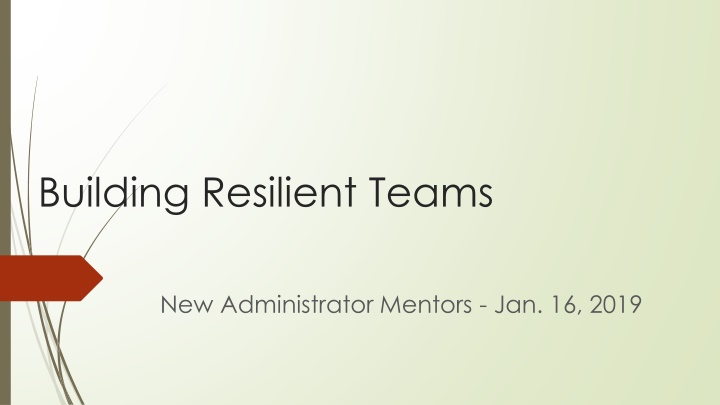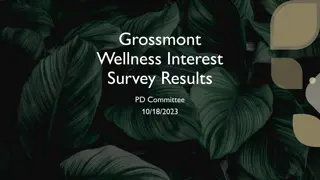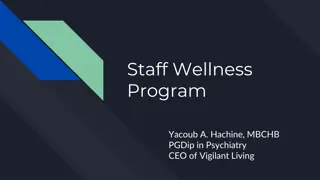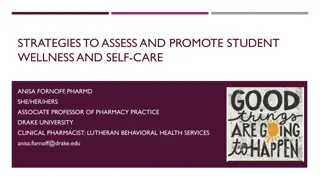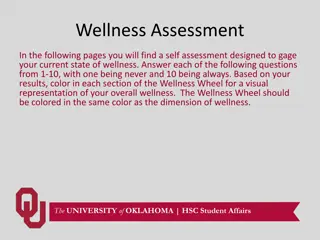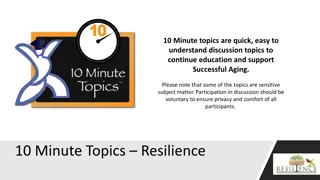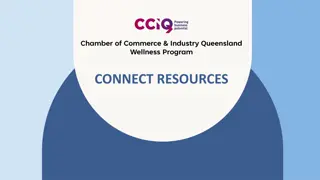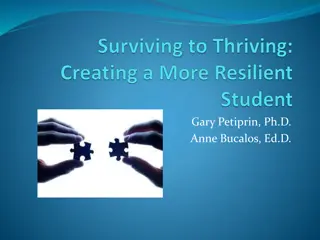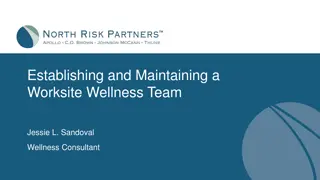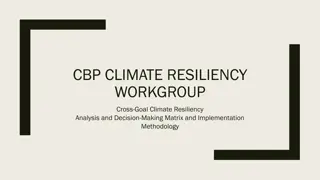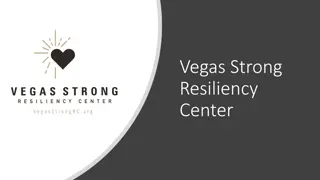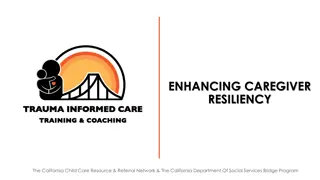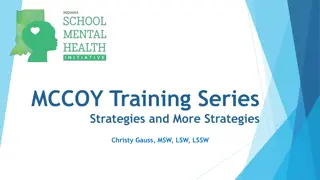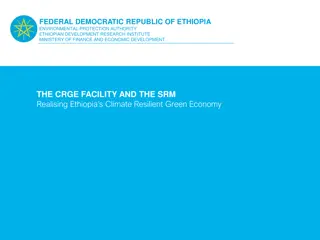Building Resilient Teams - Wellness and Resiliency Training Objectives
Define wellness, understand stressors, and set goals for resiliency training to support individual and organizational health in trauma-exposed work environments.
Uploaded on Mar 16, 2025 | 3 Views
Download Presentation

Please find below an Image/Link to download the presentation.
The content on the website is provided AS IS for your information and personal use only. It may not be sold, licensed, or shared on other websites without obtaining consent from the author.If you encounter any issues during the download, it is possible that the publisher has removed the file from their server.
You are allowed to download the files provided on this website for personal or commercial use, subject to the condition that they are used lawfully. All files are the property of their respective owners.
The content on the website is provided AS IS for your information and personal use only. It may not be sold, licensed, or shared on other websites without obtaining consent from the author.
E N D
Presentation Transcript
Building Resilient Teams New Administrator Mentors - Jan. 16, 2019
Todays Objectives Define wellness for ourselves and our organization Familiarize ourselves with the PROQOL Discuss The Why and our Plan for Resiliency Training for the rest of this year
The Why: Stressors Unique to PPS and found in Trauma-Exposed Work Inconsistent Leadership Lack of Trust High Expectations and Spotty Support The extent of emotional labor related to leadership and working with children Vicarious and Secondary Traumatic Stress Awareness of the Tragic Gap The wider population doesn t share knowledge Isolation. Confidentiality can often add to it. If we re not aware of our state of arousal, we won t be present to see it in our staff
Resiliency Training Goals We will: Acknowledge the reality of the current organizational health of PPS and the impact on the individual. Create shared understanding around organizational health, resiliency and compassion fatigue. Identify resources and strategies Incorporate these resources and strategies to support individual wellness and build organizational health.
Ever notice in a Principal ... (even you?) More than the usual mental health days or sick days? Overconsumption of alcohol or caffeine? Desire to escape ? Presented a new idea and experienced major pushback? Came before your staff with positive news or intention and was hit with suspicion and negativity? Noticed a lack of employee engagement in staff surveys or committees?
Training Goals We will: Acknowledge the reality of the current organizational health of PPS and the impact on the individual. Create shared understanding around organizational health, resiliency and compassion fatigue. Identify resources and strategies Incorporate these resources and strategies to support individual wellness and build organizational health.
Baseline: What is Your Professional Quality of Life (PROQOL Scale by B. Hudnall Stamm - 2009) To get a baseline to assess this training s effectiveness To help awareness of effects on the individual Confidential you score Future Use with our Mentees Mentors score and discuss with Mentees in One on One? Present to Mentees at New Administrator Meetings?
Future? Mentor Trainings at our future meetings? Strategies and Resource Gathering Application of Above with our Mentees CDL - Rate themselves 1-10 on Stress Teach and remind them of CS, B, and STS New Leader Meetings? (Feb. 20, Mar. 20, April 17, May 15, June 20) Teach Staying in Window of Tolerance Teach strategies (Hot Walk and Talk) Pocket Cards Judicious Use by our Mentees with their Staff Ask about their Climate and Resiliency of staff
